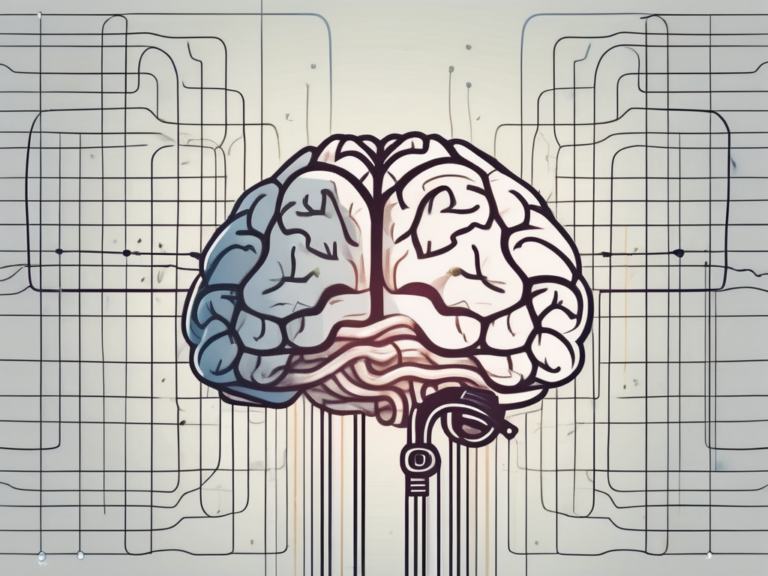The Importance of Parasympathetic Nerves: Why I Heart Them
Have you ever stopped to think about the incredible workings of your body? It’s truly a masterpiece, with intricate systems and organs that keep us going day after day. One of the unsung heroes of this intricate system is the parasympathetic nervous system. Now, I know what you’re thinking – “The what??” Don’t worry, I’m here to break it down for you and explain just why I heart parasympathetic nerves!
Understanding the Nervous System
Before we dive into the world of parasympathetic nerves, let’s take a quick look at the larger nervous system. The nervous system is like the control center of our bodies, responsible for sending signals and coordinating everything from our heartbeats to our thoughts. It’s divided into two main branches – the sympathetic and parasympathetic nervous systems.
The nervous system is an intricate network of specialized cells called neurons that transmit signals between different parts of the body. These signals can be electrical or chemical and are crucial for communication within the body. The brain and spinal cord make up the central nervous system, while the peripheral nervous system extends throughout the rest of the body, connecting organs and muscles to the central nervous system.
The Role of the Parasympathetic Nervous System
Now, let’s zoom in on the parasympathetic nervous system and see what it’s all about. This amazing system is responsible for maintaining our body at rest and in a calm state. It works in opposition to the sympathetic nervous system, which gets us ready for action in times of stress or danger.
The parasympathetic nervous system is like a soothing balm for the body, promoting activities that help conserve energy and promote digestion. When this system is activated, heart rate decreases, digestion is stimulated, and the body enters a state of relaxation. This rest-and-digest response is essential for maintaining overall balance and well-being.
The Sympathetic Nervous System: A Comparison
To truly understand the parasympathetic nerves, it’s essential to compare them to their fiery counterpart, the sympathetic nervous system. While the sympathetic system is like a burst of adrenaline, the parasympathetic system is like a gentle whisper, guiding our bodies back to a state of tranquility.
The sympathetic nervous system is often referred to as the fight-or-flight response, as it prepares the body for action in response to perceived threats. When activated, this system increases heart rate, dilates airways, and redirects blood flow to muscles, enabling a rapid response to danger. This heightened state of alertness and readiness is crucial for survival in challenging situations.
The Parasympathetic Nerves and the Heart
Now that we know a bit about the parasympathetic nervous system, let’s focus on its impact on one of our most vital organs – the heart. Our hearts are amazing muscle pumps that work tirelessly to keep us alive, and the parasympathetic nerves play a crucial role in their function.
When we talk about the parasympathetic nerves and the heart, it’s important to understand the intricate dance they perform. These nerves, part of the autonomic nervous system, work in harmony with the sympathetic nerves to maintain a delicate balance in heart function. While the sympathetic nerves rev up the heart rate in response to stress or excitement, the parasympathetic nerves step in to slow things down once the danger has passed, ensuring our heart rate returns to a normal, healthy rhythm.
How Parasympathetic Nerves Regulate Heart Function
The parasympathetic nerves work as the calming influence on our hearts, slowing down the heart rate and reducing its force of contraction. This helps keep our hearts steady and allows them to effectively pump oxygen-rich blood throughout our bodies.
Moreover, the parasympathetic nerves also play a role in regulating the electrical impulses that coordinate the heart’s contractions. By fine-tuning these impulses, the parasympathetic system ensures that the heart beats with the right rhythm and strength, optimizing its efficiency as a life-sustaining pump.
The Impact of Parasympathetic Nerves on Heart Health
Now, you might be wondering how these parasympathetic nerves affect our heart health in the long run. Well, studies have shown that individuals with a well-functioning parasympathetic nervous system tend to have a lower risk of heart disease and other heart-related complications.
Furthermore, the parasympathetic system’s ability to promote relaxation and reduce stress levels can have a profound impact on heart health. Chronic stress is known to contribute to the development of heart disease, and by counteracting this stress response, the parasympathetic nerves help protect the heart from potential damage, keeping it strong and resilient in the face of life’s challenges.
The Wider Impact of Parasympathetic Nerves
While the heart is undoubtedly a significant beneficiary of the parasympathetic nervous system’s calming influence, let’s not forget that these nerves have a wide range of effects throughout our bodies.
Parasympathetic nerves play a crucial role in maintaining homeostasis in the body. Beyond their effects on the heart, digestion, and eye function, these nerves also influence various other bodily functions. For example, they are involved in promoting relaxation and reducing stress by counteracting the fight-or-flight response of the sympathetic nervous system. This calming effect helps in lowering blood pressure, decreasing respiratory rate, and conserving energy when the body is at rest.
Parasympathetic Nerves and Digestion
Ever had that peaceful feeling after a satisfying meal? Thank your parasympathetic nerves for that! They play a vital role in stimulating digestive processes, such as the secretion of digestive enzymes and the movement of food through our gastrointestinal tract. So, when you’re enjoying that delicious meal, take a moment to appreciate the work of these nerves.
Moreover, parasympathetic nerves also regulate the release of hormones that aid in digestion and nutrient absorption. This intricate network ensures that our bodies can break down food efficiently and extract essential nutrients to support overall health and well-being.
The Role of Parasympathetic Nerves in Eye Function
Have you ever wondered how we can focus our vision on an object? Well, you can thank your parasympathetic nerves for that too! They control the muscles that adjust the size of our pupils, ensuring that we can see clearly and effortlessly shift our focus. It’s truly amazing how these nerves work together with other systems to bring us incredible sight!
Additionally, parasympathetic nerves help in preventing dryness of the eyes by stimulating tear production. This moisture not only lubricates the eyes but also contains essential proteins and antibodies that protect against infections. The intricate coordination between the parasympathetic nervous system and the lacrimal glands highlights the body’s remarkable ability to maintain ocular health and function.
Maintaining a Healthy Parasympathetic Nervous System
Now that we understand the importance of these incredible parasympathetic nerves, the question arises – how can we keep them in excellent shape? While I’m not a doctor, I can offer a few general tips to promote the health of your parasympathetic nervous system.
The parasympathetic nervous system, often referred to as the “rest and digest” system, plays a crucial role in helping our bodies relax, recover, and rejuvenate. It is responsible for conserving energy, slowing the heart rate, and promoting digestion – all essential functions for our overall well-being.
Lifestyle Choices and the Parasympathetic Nervous System
Living a healthy lifestyle can have a positive impact on our parasympathetic nervous system. Regular exercise, stress management techniques like yoga or meditation, and a balanced diet can all contribute to maintaining a well-functioning parasympathetic system. So, let’s strive for a balanced life that supports these amazing nerves!
Furthermore, adequate sleep is paramount for the proper functioning of the parasympathetic nervous system. During deep sleep, our bodies repair and regenerate, allowing the parasympathetic system to work its magic and restore balance to our physiological processes.
Medical Interventions for Parasympathetic Nervous System Health
In addition to lifestyle choices, there are also medical interventions that can support the health of our parasympathetic nervous system. Consulting with healthcare professionals can provide tailored advice and potential treatments or therapies that can be beneficial.
For individuals experiencing specific conditions that impact the parasympathetic nervous system, such as autonomic dysfunction or certain neurological disorders, medical interventions may be necessary to address underlying issues and improve overall function.
The Future of Parasympathetic Nervous System Research
As with any field of study, there’s always more to learn. The realm of parasympathetic nervous system research is no exception. Let’s take a peek into what the future may hold for our understanding of these incredible nerves.
Emerging Trends in Parasympathetic Nervous System Study
Scientists and researchers are constantly exploring new avenues to expand our knowledge of the parasympathetic nervous system. Cutting-edge technologies and innovative study designs are helping shed light on the intricate workings of these nerves, helping us better understand their role in our bodies.
One emerging trend in parasympathetic nervous system research is the use of advanced imaging techniques. Scientists are now able to visualize the activity of these nerves in real-time, allowing for a more detailed understanding of their function. This breakthrough has opened up new possibilities for studying the parasympathetic nervous system in various physiological and pathological conditions.
Potential Breakthroughs in Parasympathetic Nervous System Understanding
While it’s always exciting to think about potential breakthroughs, it’s important to approach them with a healthy dose of scientific skepticism. That being said, there’s always the possibility of uncovering new discoveries that could revolutionize our understanding and treatment of disorders related to the parasympathetic nervous system.
One potential breakthrough that researchers are eagerly exploring is the development of targeted therapies for parasympathetic nervous system disorders. By understanding the specific mechanisms that regulate the activity of these nerves, scientists hope to develop novel treatments that can restore their function in individuals with conditions such as heart rhythm disorders, gastrointestinal disorders, and even certain eye diseases.
In conclusion, the parasympathetic nerves are true unsung heroes of our bodies. They work quietly behind the scenes, ensuring our hearts beat steadily, our digestion is smooth, and our vision remains razor-sharp. So, let’s take a moment to appreciate these amazing nerves and strive to support their health through lifestyle choices and medical interventions. Remember, the importance of parasympathetic nerves goes beyond just the heart – they are the silent champions that keep our bodies in harmony!






